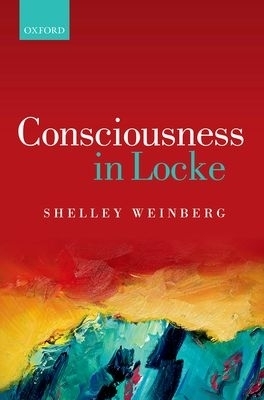
Consciousness in Locke
Oxford University Press (Verlag)
978-0-19-874901-1 (ISBN)
Shelley Weinberg argues that the idea of consciousness as a form of non-evaluative self-awareness runs through and helps to solve some of the thorniest issues in Locke's philosophy: in his philosophical psychology and in his theories of knowledge, personal identity, and moral agency. Central to her account is that perceptions of ideas are complex mental states wherein consciousness is a constituent. Such an interpretation answers charges of inconsistency in Locke's model of the mind and lends coherence to a puzzling aspect of Locke's theory of knowledge: how we know individual things (particular ideas, ourselves, and external objects) when knowledge is defined as the perception of an agreement, or relation, of ideas. In each case, consciousness helps to forge the relation, resulting in a structurally integrated account of our knowledge of particulars fully consistent with the general definition. This model also explains how we achieve the unity of consciousness with past and future selves necessary for Locke's accounts of moral responsibility and moral motivation. And with help from other of his metaphysical commitments, consciousness so interpreted allows Locke's theory of personal identity to resist well-known accusations of circularity, failure of transitivity, and insufficiency for his theological and moral concerns. Although virtually every Locke scholar writes on at least some of these topics, the model of consciousness set forth here provides for an analysis all of these issues as bound together by a common thread.
Shelley Weinberg's research interests are in the history of early modern philosophy, especially Locke and issues of consciousness and perception. Her previous work in these areas can be found in History of Philosophy Quarterly, Journal of the History of Philosophy, and Pacific Philosophical Quarterly. She received her PhD in philosophy from the University of Toronto in 2008. She is currently an assistant professor at the University of Illinois at Urbana-Champaign.
Preface ; 1. Consciousness in the Seventeenth Century ; 2. Consciousness in Locke's Philosophical Psychology ; 3. Consciousness in Locke's Theory of Knowledge ; 4. Consciousness in Locke's Theory of Personal Identity ; 5. Consciousness and Moral Motivation ; Conclusion ; Works Cited
| Erscheint lt. Verlag | 15.1.2016 |
|---|---|
| Verlagsort | Oxford |
| Sprache | englisch |
| Maße | 166 x 241 mm |
| Gewicht | 512 g |
| Themenwelt | Geisteswissenschaften ► Philosophie ► Erkenntnistheorie / Wissenschaftstheorie |
| Geisteswissenschaften ► Philosophie ► Geschichte der Philosophie | |
| Geisteswissenschaften ► Philosophie ► Philosophie der Neuzeit | |
| ISBN-10 | 0-19-874901-5 / 0198749015 |
| ISBN-13 | 978-0-19-874901-1 / 9780198749011 |
| Zustand | Neuware |
| Haben Sie eine Frage zum Produkt? |
aus dem Bereich


